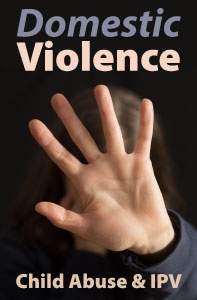We are launching our new website logins, account creation, and purchases are restricted. Any course activity is not being recorded until the new site has launched. Expected Launch Time 8:00pm EST Nov 20th.
SALE
$7
REG. $14

Related Courses

Nurturing the Child with Special Needs

Supportive Communication for the Child with Special Needs

Improving Social Skills in Children & Adolescents

Domestic Violence: Child Abuse and Intimate Partner Violence
Stalking: Recognizing and Responding
Erika Smith-Marek, PhD, LMFT
CE Credit: 1 Hour
Target Audience: Psychology CE | Counseling CE | Social Work CE | Marriage & Family Therapy CE | School Psychology CE
Learning Level: Introductory
Course Abstract
Stalking: Recognizing and Responding is a 1-hour online continuing education (CE) course that examines the prevalence of stalking and provides therapists with the means to identify and assist victims/survivors.
Stalking is a crime that is far more prevalent and more dangerous than most people realize. It is a crime that is not well understood and that often goes unrecognized. Findings from various studies examining the prevalence of stalking suggest that community-based interventions are critical to raising awareness about this crime and promoting prevention efforts. Mental health professionals have an important role in identifying and treating victims/survivors of stalking through educating themselves about this crime.
Researchers have found that stalking victims have a higher incidence of mental disorders and comorbid illnesses compared with the general population, with the most robust associations identified between stalking victimization, major depressive disorder, and panic disorder. Additionally, intimate partner stalking has been identified as a common form of IPV experienced by women veterans that strongly contributes to their risk for probable PTSD. These findings indicate that it is important to assess for these symptoms and diagnoses when working with victims/survivors of stalking.
This course is designed to enhance your understanding of stalking by reviewing key findings from research on stalking, identifying common tactics used by stalkers, and exploring the intersections between stalking, intimate partner violence, and sexual violence. This course will also examine common reactions experienced by victims/survivors of stalking and discuss ways to assist victims/survivors in clinical practice.
Closeout Course #11-17 | 2018 | 18 pages | 10 posttest questions
Learning Objectives
Professional Development Resources, #1046, is approved as an ACE provider to offer social work continuing education by the Association of Social Work Boards (ASWB) Approved Continuing Education (ACE) program. Regulatory boards are the final authority on courses accepted for continuing education credit. ACE provider approval period: 6/12/2022 - 6/12/2025. Social workers completing this course receive 1 clinical continuing education credits.
Professional Development Resources is CE Broker compliant (#50-1635 - all courses are reported within two business days of completion). Professional Development Resources, Inc. is recognized by the New York State Education Department's State Board for Social Work as an approved provider of continuing education for licensed social workers (#SW-0664 - Note: New York social workers will receive 1 continuing education credit(s) for completing this self-study course). Professional Development Resources is also approved by the Texas State Board of Social Worker Examiners (#5678).
This online course provides instant access to the course materials (PDF download) and CE test. The course is text-based (reading) and the CE test is open-book (you can print the test to mark your answers on it while reading the course document).
Successful completion of this course involves passing an online test (80% required, 3 chances to take) and we ask that you also complete a brief course evaluation. Click here to learn more.
Have a question? Contact us. We’re here to help!
Erika Smith-Marek, PhD, LMFT, is a Licensed Marriage and Family Therapist, a Clinical Fellow of the American Association for Marriage and Family Therapy, a Certified Trauma Treatment Specialist through the Association of Traumatic Stress Specialists, and an EMDRIA Approved Consultant and Certified Therapist in EMDR Therapy. She has over fifteen years of experience specializing in the treatment of trauma and posttraumatic stress disorder (PTSD) as well as marital, couple, and family therapy. Her clinical and research interests converge around the treatment of trauma and traumatic stress. https://www.erikasmithmarek.com/
Disclosure:
Financial: Dr. Smith-Marek receives author compensation from Professional Development Resources.
Nonfinancial: No relevant nonfinancial relationships exist.
Customer Reviews